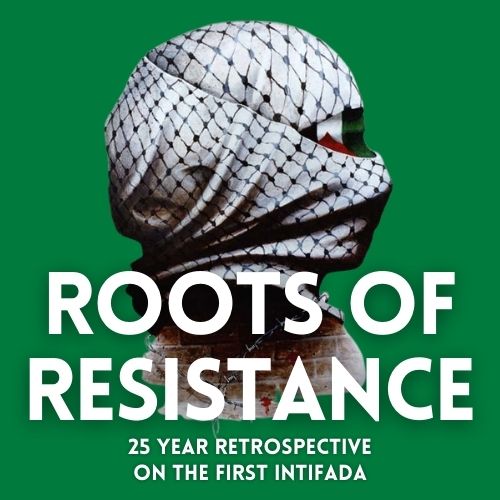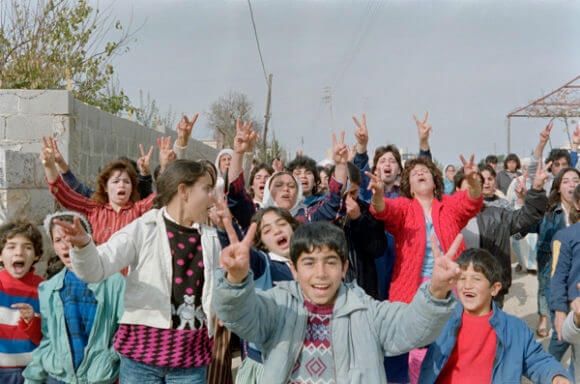This post is part of the series “Roots of Resistance: 25 year retrospective on the first intifada.” Read the entire series here.

I think of the first Intifada, which erupted in late 1987 before waning in the early 1990‘s, as the Palestinian people’s most democratic moment. It was a true upsurge of grassroots sentiment and activism that momentarily shifted the political initiative out of the hands of diaspora elders and political fixers and into the hands of a youthful decentralized leadership in the West Bank and the Gaza Strip. The Intifada was managed on a day-to-day basis by a “Unified National Leadership of the Uprising” that had a rotating membership that both practiced and preached respect for democracy.
The period was characterized by the invigoration of civil society by a host of new non-governmental organizations – human rights groups, women’s groups, medical societies, and the like – that mobilized broad segments of Palestinian society in largely non-violent resistance to Israeli occupation. The first Intifada also witnessed a visible increase in the public political role of Palestinian women. And while the Intifada by no means permanently altered the patriarchal structure of Palestinian society, in the words of Joost Hiltermann “women made important progress in raising consciousness of their rights in society, and more women were mobilized than ever before in organization structures that channeled their energies toward satisfying, beyond demonstrations, the needs of a society under siege.”
Yet against these positive, democratizing trends that characterized the first Intifada, there other troubling developments. First, this was also the era in which Palestinian Islamist organizations such as Palestinian Islamic Jihad and Hamas rose to prominence. To be clear, these organizations were not inherently anti-democratic. Indeed, there is good evidence that Hamas, at least, has conducted its internal affairs in a far more democratic and disciplined manner than any of the secular nationalist Palestinian organizations. However, Hamas and other religiously-inspired Palestinian groups raised the difficult and as yet unresolved issue of whether and how to integrate divergent Palestinian outlooks into a single national representative body.
Second, the Intifada was never simply a spontaneous outburst of Palestinian popular resentment against Israeli occupation giving rise to wholly new and independent political forces. It was always simultaneously structured and guided by pre-existing Palestinian political groups; the Unified National Leadership of the Uprising, for example, consistently consulted the PLO leadership, then based in Tunis, on its proposed actions. In any case, the old guard soon reasserted its hegemony over the Palestinian national movement, riding the wave of popular revolt into the Madrid peace talks in 1991, and as the Palestinian public was later to learn, the secret negotiations leading to the Oslo accords in 1993. This, in a sense, was the beginning of the process of “de-democratization” of Palestinian politics that has led to the current fragmentation, weakness, ineptitude, and corruption of the current Palestinian leadership.



is it inevitable
the fall from the majestic heights of revolution to the swamplands of hopelessness & despair
where revolutionary dreams give way to the reality of running a society?
as happened in intifada I, the arab spring, and so many popular uprisings elsewhere
past & present
but the collective rotating leadership of intifada I that both “protected and preached” democracy for 5 years?
inevitable, too, that it be taken over by the old guard?
how to keep a revolution going?
aboard its prevailing spirit
equality
wherever one equals one